
Welcome to Curtain Call, our mostly queer take on the latest theater openings on Broadway and beyond.
The Rundown:
Michael R. Jackson’s Pulitzer Prize-winning musical A Strange Loop arrives on Broadway, backed by powerhouse producers, including RuPaul, Alan Cumming, Jennifer Hudson, Billy Porter, Ilana Glazer, and more. The names above the title may pique the interest of celebrity-hungry theatergoers, but it’s the electrifying cast, led by newcomer Jaquel Spivey that dismantles everything we believed a Broadway musical “should” be.
Spivey, as the central character of Usher, spirals through a bombardment of “extremely obnoxious” thoughts, brought to life by a chameleon-like ensemble. From his day job as a Broadway usher to his ambition as a musical theater composer and conflicted relationship with his God-fearing mother and beer-swigging father, Usher nevertheless finds his way, delivering a “big, Black, and queer-*ss American Broadway show!”
Related: Alexandra Grey turns trauma into triumph in The Life
How about we take this to the next level?
Our newsletter is like a refreshing cocktail (or mocktail) of LGBTQ+ entertainment and pop culture, served up with a side of eye-candy.
No Tea, No Shade:
A Strange Loop has been a lifetime in the making — Michael R. Jackson’s lifetime. Raised in Detroit, Michigan, he eventually descended upon New York City to study playwrighting and musical theater writing at NYU. It was here that he wrote “Memory Song,” which he describes as a piece “about a gay Black man waking up in bed next to someone and feeling ashamed and crying out to God for forgiveness.” It still remains in the show as a poignant denouement. Other bits of writing evolved, like the monologue called “Why I Can’t Get Work,” along with an obsession with Liz Phair’s music, including her song “Strange Loop.”
Director Stephen Brackett (who has been with the project since an early reading at NYU) suggested casting A Strange Loop with a Black and queer-identifying cast. Only later did Jackson start digging further and connect Phair’s song to cognitive scientist scholar (and another Pulitzer Prize winner) Douglas Hofstadter’s theory of a strange loop, which explores our various levels of consciousness and the narrative self.
But don’t be deterred by the headiness of Jackson’s dramatic fodder. While it’s true that A Strange Loop’s density of ideas requires a deft ear, it’s equally peppered with punchy, melodic riffs and cultural takedowns. At one point, a Thought says to Usher, “I just wish the protagonist of A Strange Loop were someone I could imagine shagging because whether it’s the Me Too era or not, f*ckability is still the lifeblood of the theater, darling.”
Other cultural, familial, and religious ideologies undermine Usher’s pursuit to write the next great American musical. Jackson unabashedly tackles them head-on, including systemic racism within the queer community, the AIDS crisis, which disproportionately impacts Black men, and a family that believes his road to success hinges on writing the next Tyler Perry gospel play.
Let’s Have a Moment:
Director Brackett and choreographer Raja Feather Kelly keep A Strange Loop moving at a brisk pace. Sparse but smart costume changes (such as a scene where apparitions of Harriet Tubman, Whitney Houston, James Baldwin, and Zora Neale Hurston appear) by Montana Levi Blanco, and a scenic design by Arnulfo Maldonado that transforms from brick portals to an overstuffed living room straight out Madea’s Big Happy Family, give the production heft to command Broadway ticket prices.

But it’s A Strange Loop’s most intimate moments that linger.
At intermission on one of his shifts, Thought #1 manifesting as a patron (the magnetic J Morgan Lee), engages Usher in conversation, asking, “What is your big city dream?”
He rambles of his desire to write about “a black, gay man writing a musical about a black, gay man who’s writing a musical about a black gay man who’s writing a musical about a black gay man” and the tsunami of fears that come with that dream.
“If you’re not scared to write the truth then it’s probably not worth writing,” she responds. “And if you’re not scared of living the truth then it’s probably not worth living.”

The Last Word:
Leaving the theater, I fell in step with two white gay millennials, who spoke enthusiastically of the production but with caveats. “I could never take my mother,” said one. “It’s very niche,” said the other with a barely detectable air of subconscious racism.
While I can’t deny many will find the brutal honesty of A Strange Loop provocative, its success lies in the delicate balance of specificity and universality. Usher’s journey loops more like a spirograph than the neat circumference of a circle. Like all our lives, it intersects at the most inopportune moments, kicking up fears and inadequacies we thought buried long ago. And that’s not so strange, after all.
A Strange Loop plays at the Lyceum Theatre.



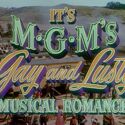






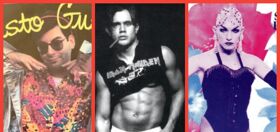

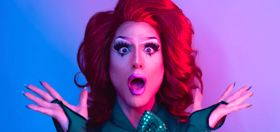


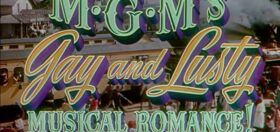
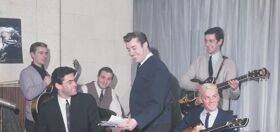

Kangol2
I’ve heard a lot of good things about this musical so I’ll be adding it to my to-do list.
BennyTheHill
The guy needs to go on a serious diet.
mike
I rarely read the comments, yet every time I do, there’s a nasty one from you. You should re-evaluate your life, it’s not going in the right direction. I’m really curious as to what you gain by posting the things you do. Is it actually one of those live art things, where you troll on purpose to make a statement about something, or are you just that miserable of a human? Just wondering…..
white-queer-african
@BTH Copy & Paste, I suggest you watch Randy Rainbow’s “Gurl, you a Karen”. If you haven’t already.
Describe you to a T. Racist-ass. Getting your info from Fox News and Qanon.
LOL.LOL.LOL.
white-queer-african
@Mike, trust me @BTH Copy & Paste is just a miserable, bitter old human.
frapachino
@ Mike so its OK for YOU to call people names and be “hateful”? Seriously I don’t get it, the guy made a legitimate comment on a story here , you know in the COMMENTS section, and you gallop in on your high horse to self righteously condemn him. Irony look it up.
jcool
frapachino
are you benny’s new screen name? he made no legitimate comment on the story. he never does. he called a performer fat. welcome to the game, new benny.
mozzer
Youre a D*CK!
Mister P
This show looks very interesting.